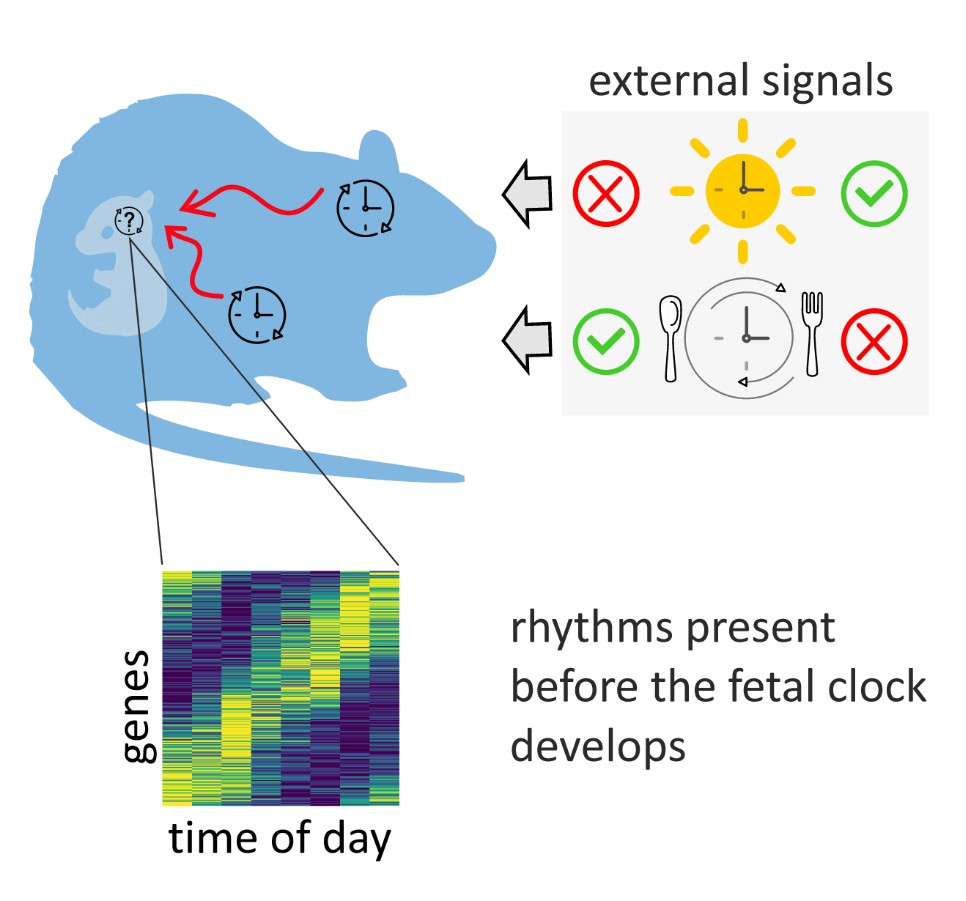Before the fetal internal biological clock in the suprachiasmatic nuclei (SCN) of the hypothalamus begins to tick, the rhythmic behavior of the mother affects the function and development of this structure. This was found in a new study published by the team of Alena Sumová from the Institute of Physiology of the Academy of Sciences of the Czech Republic on May 24 in the journal PLOS Biology. This discovery contributes significantly to the understanding of the development of the internal clock and may find application in the treatment of premature babies.
The SCN are the central clock in our body, driven by the rhythmic switching on and off of the clock genes. The rhythmic activity of clock genes in SCN cells controls the activity of many other genes locally and elsewhere in the body, which ultimately affects a wide range of circadian rhythms in behavior, including food intake and sleep. However, this autonomous rhythmic gene activity of the SCN begins relatively late in fetal development, which raises the question of whether maternal signals may affect the gene activity in the SCN before it develops.
To investigate this question, the authors compared the daily gene activity profiles in SCN from fetuses developing in pregnant rats kept in the constant darkness under two different conditions. The control group of mothers had intact SCN and free access to food, while the other group of mothers had SCN surgically removed and had limited access to food for eight hours a day so that their locomotor activity showed a circadian rhythm even in the absence of a central clock. Using biostatistical analyzes they found that in the SCN of the fetuses of both groups, there was a small set of genes whose timing differed between the two groups, and a much larger set of genes whose activity oscillated in synchrony. Many of these genes could be assigned to two major neuronal processes, reflecting in the first case the ongoing development of the SCN and in the second case the earliest manifestation of their function. The data suggest that in the development of fetal SCN, maternal stimuli can replace the missing intercellular synaptic communication and control the rhythms of cell populations before the SCN clocks fully mature. The unexpected extent and specificity of SCN cell responses to maternal signals underlines the importance of a functioning maternal biological clock during pregnancy and points to the potential impact of the absence of such signals in preterm infants.
Greiner P., Houdek P., Sládek M., Sumová A.: Early rhythmicity in the fetal suprachiasmatic nuclei in response to maternal signals detected by omics approach. PLOS Biology; DOI, IF 8.029 Published: May 24, 2022


